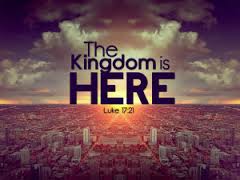We recently directed some guests of ours from overseas to Kings Cross station London as they wanted to see platform 9 ¾, I wondered what they wanted, 9 ¾ never heard of such a platform, cannot be really? I had no idea what they were talking about, never heard of it, thought they are not from UK. However I found out that they knew better than me, the platform was made famous through Harry Potter’s book, you go to the platform quite simply to get your photo opportunity… just in case you wish to see it take the Underground to Kings Cross / St. Pancras, (two main line stations that share the same Underground Station). Follow the signs into Kings Cross Station when you get to the surface walk along Platform 8 (it’s totally free access). When you see a sign directing you left to Platforms 9 to 11 keep going on along Platform 8 and the Platform 9 3/4 photo opportunity is a few yards further along on your left. There is normally a conspicuous sign on the platform pointing to the small alcove and out of the wall projects half a baggage trolley. You have arrived at your destination.
I had no idea of how to get there or how to help others arrive there then the thought came to me, it is a real challenge for us all to answer the question “where are we going and how can we help each other get there?”. It is a timely question in the hour we live, with so many changes in society, politics and the economic world , in the business world and in the world of faith, the church change is coming at us as a fast speeding train, whether we want it or not. Where is it taking us and how can we help each other get there?
It is a day for the prophetic people of God to come to the forth, a day in the midst of much noise and debate, to take hold of the word of God. Gods’ words when uttered in the past created, they also sustained people who took them up. These spoken words gave direction and knowledge to those who listen and heard them, those who listened did not find themselves with out understanding.
Clearly we are in a day of discovering a deeper trust of the Father a new listening and obedience that will lead us into freedom and to the land of promise. We have to grasp the idea that we are on journey, that in itself will empower, challenge and mature all who embark.
Today as people of God in the west, we find ourselves so much part of societies thinking at large, that it has invaded the church and they way we think, becoming consumers in every way. Seeking ever-increasing experiences for our emotions, listening to the word of God to consume that which we believe that will give us a quick advance, an edge on life or even fix? Making decisions on that which we can get hold of immediately, the NOW rules us. Yet the Journey men and women of old, the pictures of lives of people between the covers of the scriptures walked a journey, not a quick dash with immediate consumer gratification. Consider the lesson of one of these journey men, Abraham, here is a man who had promise upon promise spoken to him, of people’s, fathering, sons, nation and land, God promises to bless all nations through Abraham, yet Abraham received none of these in his day, but even 1000’s of years on the promises are still coming to pass.
Even more than that Abraham had a 644 Kilometer journey, once he was willing to entertain the promise. A 644 Kilometer journey and a 4000+ year, time frame, to get the promises. Now that is a challenge once he become obedient to the promise words of God it was a long haul walk and a massive time frame to content with. Now don’t get me wrong on the journey there where evidences, victories of the promise but its fullness took walking on investing time, he become wealthy in his day, he had influence and did finally get a true son of promise, but certainly one son does not constitute a nation! Once Abraham believed and entered the journey it was counted as righteousness to him, that is keeping in right line with the journey, and keeping it foundational to life’s actions and decisions. The words of God are living, but how living are they ? They require movement, obedience, a change of vicinity, a change of surroundings, a departure and a step in front of you. Actually the words of promise to us all are to bring about sons of God who are led by the Spirit, to bring maturity in light of eternal promise.
I think its time to discover not only the joy of the immediate but the eternal will of the Father, knowing that we have been called to an eternal purpose, to depart from the tent of the immediate and become the tent of meeting for our life and then our world around us. We are, the people of God, the ecclesia, the church are to be the place where people will meet the love of God along with a people who are a prophetic journeying people
Let me encourage you to find others people who will also ask, where is all this taking us? where are we going and how can i help you get there rather than making sure i can get there.
Traveling in a plane has its challenges, but no more for me than the initial film or safety demonstration, we are all shown, there is one difficult line there to listen to, it goes something like this …make sure your mask when it drops from the roof goes on you first before you see to children or others… that is so against the journey of prophetic people, firstly seeing to ourselves before others, so that we can all arrive together. Many years ago we were taught to play croquet by a great Godly man called Arthur Wallis some 15 or so of us, in a retreat centre in Sheffield. As we came to the end of our game and lesson Arthur being the master crossed the line, won the game and a shout of “…you have won Arthur…” went up from all, with this he turned and said “…no I only cross the line when all my brothers cross…” and with that he went to be with the Lord. What a line to enter eternity with, to depart this expression of life with, what a way to live, asking more how can i help you get to the destination of the will of God rather than consuming, to get there myself.
So find journey men and women, young people, children sojourners who are pursuing the will of the Father in eternal promise and plan and seek to help each other fulfill the prophetic purpose of God.






